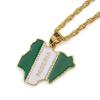News And PoliticsCommunications And EntertainmentSports And FitnessHealth And LifestyleOthersGeneralWorldnewsBusiness And MoneyNigerianewsRelationship And MarriageStories And PoemsArts And EducationScience And TechnologyCelebrityEntertainmentMotivationalsReligion And PrinciplesNewsFood And KitchenHealthPersonal Care And BeautyBusinessFamily And HolidaysSportsStoriesIT And Computer ScienceRelationshipsLawLifestyleComedyReligionLifetipsEducationMotivationAgriculturePoliticsAnnouncementUSMLE And MedicalsMoneyEngineeringPoemsSocial SciencesHistoryFoodGive AidBeautyMarriageQuestions And AnswersHobbies And HandiworksVehicles And MobilityTechnologyFamilyPrinciplesNatureQuotesFashionAdvertisementChildrenKitchenGive HelpArtsWomenSpiritualityQuestions AnsweredAnimalsHerbal MedicineSciencePersonal CareFitnessTravelSecurityOpinionMedicineHome RemedyMenReviewsHobbiesGiveawayHolidaysUsmleVehiclesHandiworksHalloweenQ&A
Top Recent
Loading...
You are not following any account(s)
dataDp/1032.jpeg
Worldnews

Mali Army Says 80 Fighters Killed After Earlier Al-Qaeda Linked Attacks
~1.5 mins read
An al-Qaeda affiliate earlier claimed responsibility for ‘coordinated and high-quality attacks’ in the country. Mali’s armed forces have killed 80 fighters in response to a series of simultaneous and coordinated attacks on military posts across the country, according to a video statement released by the military. “The enemy suffered significant losses in every location where they engaged with the security and defence forces,” Souleymane Dembele, the army’s spokesperson, said in a special bulletin broadcast on the armed forces’ television channel, as visuals of fallen rebels, their weapons, motorbikes, and vehicles were displayed. Al-Qaeda affiliate Jama’at Nusrat al-Islam wal-Muslimin (JNIM) earlier claimed responsibility for “coordinated and high-quality attacks”, saying it had taken control of three barracks and dozens of military positions. Mali’s armed forces said the attacks took place in seven towns in the central and western regions of the West African country. The incidents bore the hallmarks of other recent operations by the group, which has conducted similar assaults on military positions in Mali and Burkina Faso. Mali, governed by a military government since 2020, has for more than a decade fought violent groups linked to ISIL (ISIS) and al-Qaeda, while contending with a longer history of Tuareg-led rebellions in the north. The attacks on Tuesday targeted Diboli in western Mali near the border with Senegal, and the nearby towns of Kayes and Sandere. There were also attacks in Nioro du Sahel and Gogoui, northwest of the capital Bamako near the border with Mauritania, and in Molodo and Niono in central Mali, “all struck by shellfire”, the army’s statement said. Residents and a local politician confirmed the attacks in at least four towns. “We woke up in shock this morning. There’s gunfire, and from my house I can see smoke billowing towards the governor’s residence,” one resident in the city of Kayes said. The person described the gunfire as “intense” while another reported sheltering at home while the assault raged on. Elsewhere, a local political official wrote on Facebook that “the region of Nioro woke up in shock” and that the towns of Nioro, Sandare and Gogui had been targeted. Follow Al Jazeera English:...
Read this story on Aljazeera
profile/5683FB_IMG_16533107021641748.jpg
News_Naija

Abuja Councils Controversial TV Levy Triggers Backlash, Legal Threats
~7.1 mins read
A recent demand notice by the Abuja Municipal Area Council required a business owner to pay N500,000 for owning a television set. In this report, SOLOMON ODENIYI highlights the outrage and concerns it has sparked about the country’s taxation system A storm of criticism has erupted over the Abuja Municipal Area Council’s demand that a business owner pay a hefty levy for owning a television set. The controversy gained traction after an exchange of letters between AMAC and an Abuja-based infotech firm, Tela Network Ltd, surfaced online. In a demand notice dated January 6, 2025, AMAC informed Tela Network Ltd that it owed N1m in arrears for 2023 and 2024. The council also imposed a N500,000 fine and set the 2025 levy at N500,000, bringing the total demand to N2m. The letter directed the company to pay via bank draft to a designated Zenith Bank account within 14 days and to obtain an official receipt at the AMAC Revenue Office. In response, Tela Network Ltd, through its legal representatives, Laureate Chambers, sought clarification from AMAC. In a letter dated February 16, the firm argued that it does not engage in radio or television broadcasting and should not be subject to the levy. “We believe this demand notice has been wrongly addressed. However, if you hold that this demand has been rightly addressed, kindly furnish us with the section of the AMAC by-law that obligates an infotech company to pay for a TV/Radio license, unrelated to its business,” the letter read. AMAC responded on February 18, citing the 2012 By-Law, which categorises businesses under different tax brackets. The council maintained that “Computer Service Generally” falls under Category B, requiring firms in that sector to pay N1m annually for the TV/Radio license. The Abuja Municipal Area Council Legislative Arm enacted a law in 2012 which classifies entities and residents into five categories, A to E, for taxation purposes. A copy of the by-law enacted by the AMAC legislative arm and sighted by the PUNCH states that Category A includes the headquarters of organisations such as multinational companies, banks (including merchant banks), financial institutions, oil companies, and other corporate bodies. Entities in this category are required to pay N1,500,000. Category B consists of branches of multinational companies, banks, insurance and financial institutions (including merchant banks), textile and fabric companies, equipment leasing companies, motor factories, engineering companies, packaging companies, automobile manufacturers, security firms, technical equipment and machinery companies, pharmaceutical companies, investment firms, architectural consultancy firms, computer service providers, manufacturing companies, high-class hotels, and similar entities. Businesses in this category must pay N1,000,000. Category C is divided into three subcategories based on business size. Large businesses must pay N200,000, medium-sized businesses must pay N100,000, and small businesses must pay N50,000. Entities in this category include airline and travel agencies, courier service companies, petrol stations, haulage and storage companies, marine and oceanographic companies, telecommunication companies, agro-allied companies, supermarkets, boutiques, gas laboratories, hospital equipment suppliers, dry cleaning and laundry services, fast food centres, public relations and photographic companies, photocopying and duplicating centres, and other similar businesses. Category D applies to residents, with tax amounts based on housing type. Owners of duplexes must pay N20,000, those in flats must pay N10,000, bungalow owners must pay N5,000, and residents in self-contained apartments must pay N3,500. Category E covers communication masts and GSM service providers. Large providers must pay N2,000,000, medium-sized providers must pay N1,500,000, and small providers must pay N1,000,000. Public Outrage The development has sparked widespread condemnation, with many Abuja residents decrying what they described as excessive taxation. “How many taxes do we have to pay?” questioned a resident, Friday Innocent. “We are already struggling with rising telecom and power costs. If this goes unchallenged, what stops them from imposing more arbitrary fees?” He argued that while TV and radio levies exist in some countries, the Nigerian government has failed to provide adequate services to justify such payments. “Is our government even doing what other governments do to make life meaningful for their citizens?” Innocent added. A civil servant who did not want his name in print described the law as draconian, adding that if the law is allowed to succeed, more would be brought out by the area council. He said, “My opinion is that the amount is ridiculous and the law is draconian. I don’t know who concocted this by-law. Yes, the FCT Administration is empowered to make by-laws. How do you expect everyone with a television to pay? This is not the United Kingdom. This is an economy where the minimum wage is N70,000, why would you expect 500,000 for having a television set? It is very oppressive. The danger is that if they do this and succeed, more oppressive laws would be dug out.” Speaking in an interview with The PUNCH, the lawyer to the business owner who received the demand notice, Iroh, agreed that the law is draconian and should be challenged in a court of competent jurisdiction. He, however, said it remains the law, adding that he, his client and AMAC would hold a meeting on how to resolve the issue. He said, “The law of action that should be taken in the long run is for residents to test the validity of this by-law in court. But as far as that is the law, we may have to comply. I think it is good that people have become aware of it. My client’s TV is a Smart TV, and the issue of using a mast is out of it. I don’t see why he should be taxed. In the interim, we have to find a way to solve the problem. “There has to be a meeting of minds to resolve this issue. But, in the long run, I believe the law should be challenged in court because it is oppressive and does not consider the environment. As to whether they have the power to make by-laws, yes they have it. But as it is now, it is the law and we would have to find a way to comply.” On X, users of the microblogging platform fumed about the levy. @NigerianCitizen lamented the state of taxation in the country. He said, “Nigeria’s taxation creativity is unmatched – now, even owning a TV at your office reception attracts a N500K fee. At this rate, breathing might soon require a permit.” @Cryptic G0001 said, “Finally, someone spoke up. If you think about all the policies in this country. Starting a business go just tire you.” @Chewiz2024 said, “Until the business owners are really affected, Nigerians will not be on the street.” @ladyanalysisOAP also said the AMAC official brought the same letter to her office. She said, “They equally brought this at my place of work, I didn’t call the number until the guy called. I asked him what we were paying for and he said having television and radio in a service apartment. I told the guy they were not serious. Is it now a crime to have a TV? N200k for that matter.” @Idiongoudoh said, “This is daylight robbery, not governance. How does owning a TV in a reception translate to a N500,000 levy? Haba! Abuja Area Council should be creating a business-friendly environment, not choking entrepreneurs with senseless extortion.” Efforts to get the AMAC spokesman, Emeka James, was not successful. Initially, when contacted, he told our correspondent he was driving and requested he call back. Subsequent calls to his line indicated that it was not reachable. As outrage mounts, it remains to be seen whether AMAC will stand by its demand or reconsider in the face of public pressure. A human rights lawyer, Liborous Oshoma, lamented that the N500,000 for the license is on the high side, adding that oftentimes, the poor are compelled to pay. He said, “Every time you consider how many people/businesses can afford N500,000 in Nigeria – especially when it comes to radio and TV licences – you realise that these licences are usually paid by ordinary people. The wealthy are often beyond reach, as their homes are heavily secured, and it’s difficult to enforce such payments from them. “Typically, these rates were introduced to help local governments generate revenue in line with existing regulations. However, some state governments do not impose them because they recognise that they have not provided the necessary infrastructure to collect these fees effectively. With modern technology, many people no longer use traditional antennas, making it difficult to determine how many televisions are in a household. In the past, authorities could estimate the number of TVs by counting outdoor antennas, which were used as the basis for charging radio and TV licence fees. “I also agree that the government has not provided the necessary infrastructure to support businesses and build public confidence. Instead, businesses and individuals are subjected to excessive taxation—double, even triple taxation—which makes it increasingly difficult for them to operate. “The situation is unfair. Those who do not pay these fees often go unbothered, while those who try to comply are overburdened with bureaucratic processes. Sometimes, they are asked to fulfill multiple, redundant requirements—signing documents here and there—only to discover discrepancies in their payments or access to services. “The government appears more concerned about generating revenue than considering people’s actual earnings, profits, or ability to pay these taxes. That is why it is not just about expanding the tax net but also ensuring that those being brought into it can afford the taxes imposed on them.” As for whether the N500,000 charge should be challenged in court, he said, “I believe it can be. The amount itself can be contested because I do not think the law has been amended to accommodate such a high fee. Previously, I believe the charge was around N500 or even N50. The amount should be something people can realistically afford—maybe N500 or N1,000—because, as I mentioned earlier, those paying these fees are primarily lower-income individuals. Meanwhile, the wealthy, whose high-end homes are difficult to access, are often beyond reach.” Another lawyer, Olatunji Salawu, said, “Taxes and levies are synonymous with citizenship. Whether they are excessive or not is another thing entirely. But tax is what the government needs. The era of getting free money from fuel is almost over. If there’s any reason Nigeria should pay taxes, it is for the economic recovery. This is not peculiar to us in Nigeria. If we want to be like the advanced countries we compare ourselves with, I think our workings should be along the same lines.”
Read more stories like this on punchng.com
profile/5377instablog.png.webp
Instablog9ja

Favour Ofili Reportedly Switches Allegiance To Turkey Amid Fallout With Nigerian Athletics Officials
~3.6 mins read

Favour Ofili Reportedly Switches Allegiance to Turkey Amid Fallout with Nigerian Athletics Officials
Nigerian sprint sensation Favour Ofili has reportedly changed her international allegiance to Turkey, effective May 31, following years of frustration with the Athletics Federation of Nigeria (AFN).
According to Jamaican outlet TVJ Newscentre, veteran reporter Kenny Raynor revealed that Ofili, 22, informed the Athletics Integrity Unit (AIU) of her decision, stating it wasn’t driven by money but by persistent administrative failures by Nigerian officials.
Ofili, who boasts personal bests of 10.93s (100m) and 21.96s (200m), missed the Tokyo 2020 Olympics after Nigeria failed anti-doping compliance for selected athletes — a scandal that disqualified nine others and drew global backlash.
She was also controversially left out of the 100m event for the Paris 2024 Olympics due to what she described as another AFN oversight. Though she competed in the 200m and finished sixth, the repeated blunders reportedly deepened her disillusionment.
An internal committee later recommended a $5,000 compensation and a formal apology, but neither has reportedly been issued. While former AFN secretary Rita Mordi was redeployed, the federation’s Technical Director at the time, Samuel Onikeku, returned to the board despite being indicted.
The AFN has not commented on Ofili’s reported switch, and as of June 22, she remains listed under Nigeria on the World Athletics website.
Under World Athletics Rule 4.4.2, athletes switching countries after competing in events like the Olympics must observe a three-year waiting period unless granted an exemption. Since Ofili ran for Nigeria in Paris, she would be ineligible to represent Turkey at the 2025 World Championships in Tokyo unless the Nationality Review Panel invokes Rule 4.6 to waive the wait due to “exceptional circumstances.”
Continue reading on Instablog9ja
profile/2681Capture.PNG.webp
Investopedia
:max_bytes(150000):strip_icc()/GettyImages-1667263528-e533a88f3e0049d2be45ac436c3b7b83.jpg)
S&P 500 Gains And Losses Today: Export Cap, ASML Sales Worries Weigh On Chip Stocks
~1.4 mins read
Major U.S. equities indexes moved lower Tuesday as semiconductor stocks tumbled. Both the S&P 500 and the Dow fell roughly 0.8% on Tuesday, retreating from record closes posted in the previous session. The Nasdaq dropped 1%.
Semiconductor stocks came under pressure after semiconductor equipment maker ASML (ASML) accidentally released its earnings report a day earlier than expected, revealing lower-than-expected net bookings and a lackluster sales guidance. ASML shares plunged 16.3%.
ASML's results, as well as a report on potential U.S. export restrictions, weighed on companies across the semiconductor industry, with heavy pressure on shares of fellow semiconductor equipment manufacturers. KLA (KLAC) shares dropped 14.7%, the steepest drop of any S&P 500 stock, while shares of Applied Materials (AMAT) and Lam Research (LRCX) were down 10.9% and 10.7%, respectively. Raymond James trimmed its price targets for all three stocks, as well as ASML.
Shares of solar technology firm Enphase Energy (ENPH) sank 9.3% after RBC Capital Markets downgraded the stock to "sector perform." Analysts said tough industry competition could weigh on Enphase's growth rate.
Walgreens Boots Alliance (WBA) shares surged 15.8%, marking the top performance in the S&P 500, after the pharmacy giant reported better-than-expected sales and profits for its fiscal fourth quarter. The drugstore and health care chain also announced a turnaround plan that includes closing around 1,200 stores over the next three years.
Crude oil prices moved lower following some signs of easing geopolitical tensions and as the International Energy Agency cut its projection for oil demand growth. The prospect of lower fuel costs helped boost shares of cruise operators. Carnival (CCL) shares sailed 6.6% higher, while shares of Norwegian Cruise Line Holdings (NCLH) were up 4.1%.
Charles Schwab (SCHW) shares jumped 6.1% after the brokerage firm posted its results for the third quarter, exceeding revenue and earnings per share (EPS) forecasts. Year-over-year increases in total client assets and the number of active brokerage accounts helped drive the strong performance.
Do you have a news tip for Investopedia reporters? Please email us at [email protected] Read more on Investopedia
Loading...
 Worldnews
Worldnews
 News_Naija
News_Naija
 Instablog9ja
Instablog9ja
 Investopedia
Investopedia